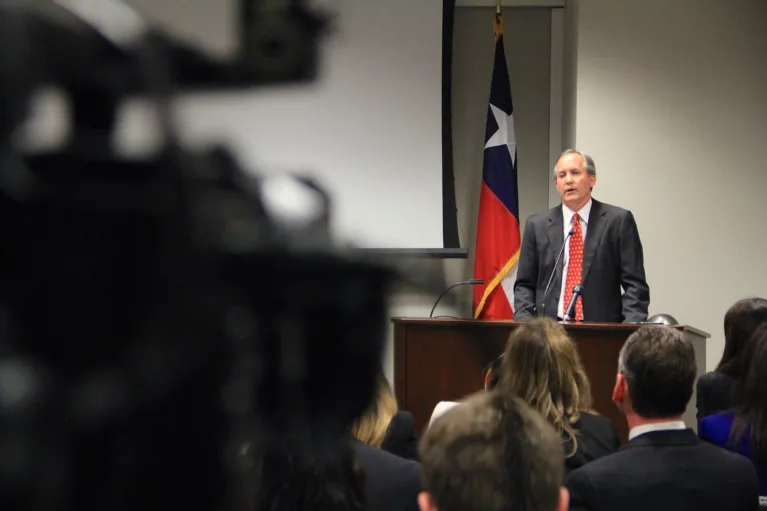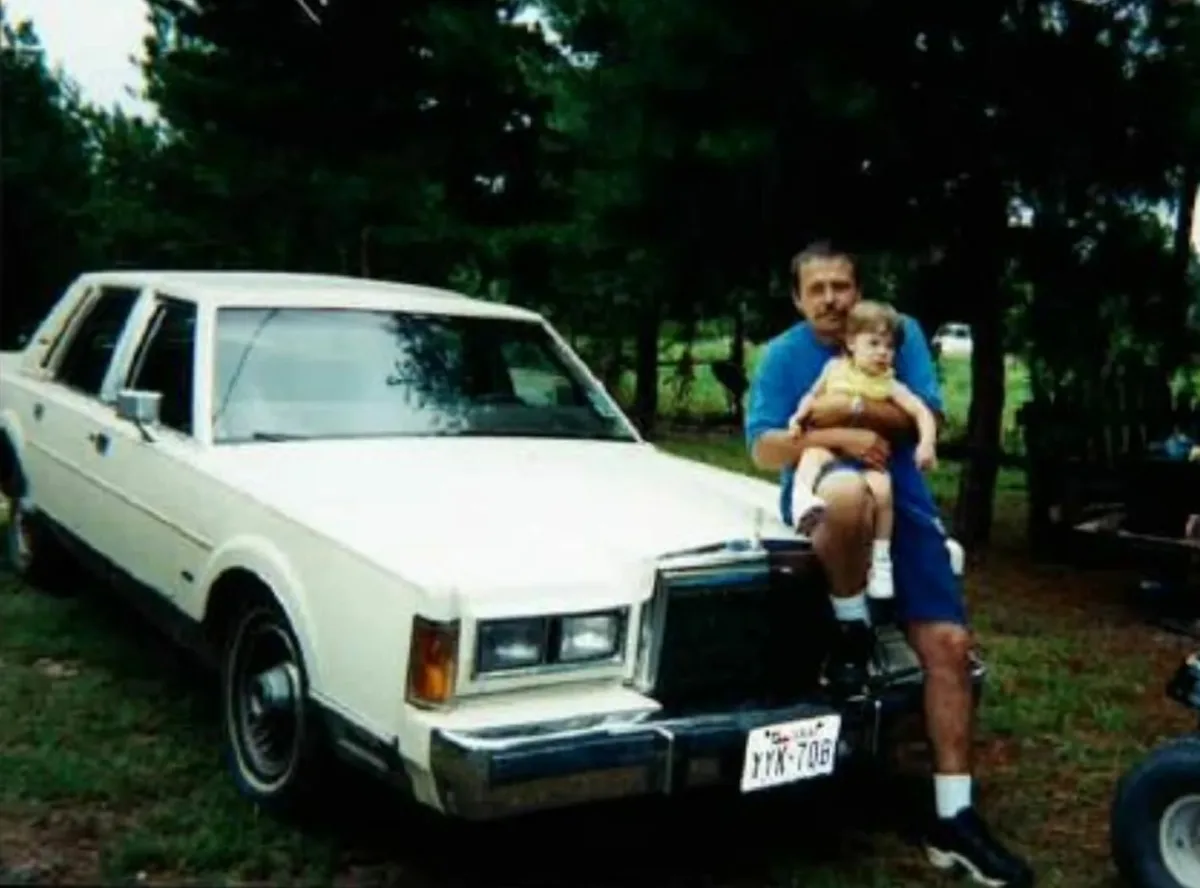Texas Lawmakers Paused Robert Roberson’s Execution—For Now
State legislators subpoenaed Robert Roberson one day before the state was set to kill him—an act that delayed the execution. Lawmakers are fighting to let Roberson testify before the state House despite objections from the attorney general and governor.

Texas lawmakers have taken historic steps to save death row prisoner Robert Roberson’s life. On Monday, Roberson was supposed to testify before the state house about his dubious conviction for “Shaken Baby Syndrome” (SBS)—a condition many experts now say is junk science.
But Roberson’s appearance seems to be on hold as Texas Attorney General Ken Paxton and Gov. Greg Abbott squabble with lawmakers—including some members of their own party.
“The most important witness, of course, is Robert Roberson,” State Rep. Joe Moody, a Democrat, said at the start of Monday’s hearing. “I’m very disappointed to say I don’t believe that will happen today.”
Roberson was convicted in 2003 of allegedly shaking his two-year-old daughter to death. The state had scheduled his execution for Oct. 17. Had he been killed, Roberson would have become the first person put to death for Shaken Baby Syndrome in U.S. history.
But at the last minute, the Texas House of Representatives Committee on Criminal Jurisprudence subpoenaed Roberson—an unprecedented move that ultimately halted his execution for at least the next 90 days.
Roberson’s lawyer, Gretchen Sween, told The Appeal she was in touch with Roberson throughout the day he was scheduled to die.
“I could just feel him just getting sadder and more withdrawn,” she said. “And then when I called him with the big news, he just said, ‘Oh, praise God, and thank everybody who helped me.’”
State Attorney General Ken Paxton initially tried to block Roberson from testifying at all. Over the weekend, Paxton said Roberson would appear by video and not in person, over the objections of Roberson’s lawyer and legislators. The outlet Quorum Report then broke the news that the governor’s office sent a letter asking the state Supreme Court to throw out the subpoena. The governor’s office has not responded to The Appeal’s requests for comment.
Moody explained that the committee “simply cannot agree to video conference,” noting that Roberson is autistic. The lawmaker said Roberson’s autism was a “core issue that impacted every stage of our justice system.” At trial, witnesses testified that Roberson was not appropriately distraught when his daughter was hospitalized.
Moody added that Roberson has also “spent most of the last two decades alone, locked away from the modern technology we now take for granted.” The legislator said video conferencing would “further the harm he’s already suffered.”

[Courtesy of the Roberson Family]Courtesy of the Roberson family
Moody said he was confident Roberson would eventually testify before the committee members.
“We are in talks with the Attorney General’s Office right now about ways their position can be addressed while allowing our committee to hear Robert in person,” Moody said. “I expect a quick resolution to these discussions, which are ongoing even at this moment.”
Republican Rep. Jeff Leach said lawmakers called the hearing to find where the system went wrong, noting that it failed both Roberson and his daughter.
“Over the past several weeks, I have grown from having questions and concerns about to believing he is fully innocent,” Leach said, noting that Roberson was “within 20 minutes and 20 steps of being executed by the State of Texas.”
The hearing proceeded with several witnesses scheduled to testify, including TV host “Dr. Phil” McGraw, author John Grisham, Roberson’s lawyer, Retired Court of Criminal Appeals Judge Elsa Alcala, and Katherine Judson, the Executive Director of the Center for Integrity in Forensic Sciences.
McGraw, who featured Roberson’s case on his show, testified in person for nearly two hours. Grisham then spoke via videoconference.
“There’s no such thing as Shaken Baby Syndrome,” McGraw said. “What is known as SBS depends on this triad of symptoms.”
“That triad of symptoms,” the TV host added, “has been debunked.”

Roberson maintains his innocence and insists he did not hurt his daughter. Like many SBS prosecutions, Texas’s case against Roberson has crumbled. But he remains incarcerated. The case’s lead detective, former Palestine, Texas, Assistant Police Chief Brian Wharton, now says Roberson is innocent and should be released. A bipartisan group of more than 80 lawmakers supported his clemency petition, along with retired federal judges, numerous scientists, and Grisham.
Despite overwhelming evidence of his innocence, Roberson’s execution seemed all but inevitable last week. The Texas Court of Criminal Appeals denied Roberson’s petition—even though they recently granted a new trial to another person convicted in an SBS case with nearly identical facts. The state’s parole board unanimously recommended against clemency. The U.S. Supreme Court refused to intervene.
If not for the actions of state lawmakers, Roberson’s execution would almost certainly have proceeded. On Oct. 16, the day before Roberson’s scheduled execution, the House of Representatives Committee on Criminal Jurisprudence held a hearing on Article 11.073, known as the junk science writ law. The law, passed in 2013, allows people to challenge their convictions based on forensic science developments that undermine evidence used during their trials.
I am at the Capitol in Austin getting ready to testify on behalf of Robert Roberson and doing what I can to make sure he gets his due process and hopefully a new trial. Stay tuned for updates. Streaming Now. pic.twitter.com/eTDP7Ejush
— Dr. Phil (@DrPhil) October 21, 2024
Once virtually unassailable in court, many in the medical and legal communities now say SBS does not exist. Many investigations into SBS convictions have shown that the baby or toddler in question was not abused but instead died from, among other things, strokes, pneumonia, sickle cell anemia, or trauma during childbirth.
Roberson’s lawyers say that his daughter, Nikki, was often ill during her short life and died from a severe case of pneumonia and septic shock. Roberson’s team says Nikki’s condition was exacerbated by dangerous levels of promethazine in her system, which was prescribed by two doctors shortly before her death.
During today’s testimony, a juror from Roberson’s trial, Terre Compton, said SBS was the only explanation prosecutors gave as to how Nikki died.
“Everything that was presented to us was all about Shaken Baby Syndrome,” Compton told the committee. “Nothing else was ever mentioned or presented to us to consider. If it had been told to us, I would have had a different opinion. And I would have found him not guilty.”
Compton said the prosecutor shook either a teddy bear or doll to demonstrate how Nikki was shaken.
State Rep. Brian Harrison, a Republican, asked Compton how it feels to see statements from the State Attorney General asserting that the jury convicted Roberson of beating his daughter to death.
“It has pissed me off very much,” she replied.
If presented with evidence of Nikki’s pneumonia and sepsis, Compton said she would have acquitted Roberson.
“I came to the conclusion that he was an innocent man,” she said. “I could not live with myself thinking that I had a hand in putting an innocent man to death.”
